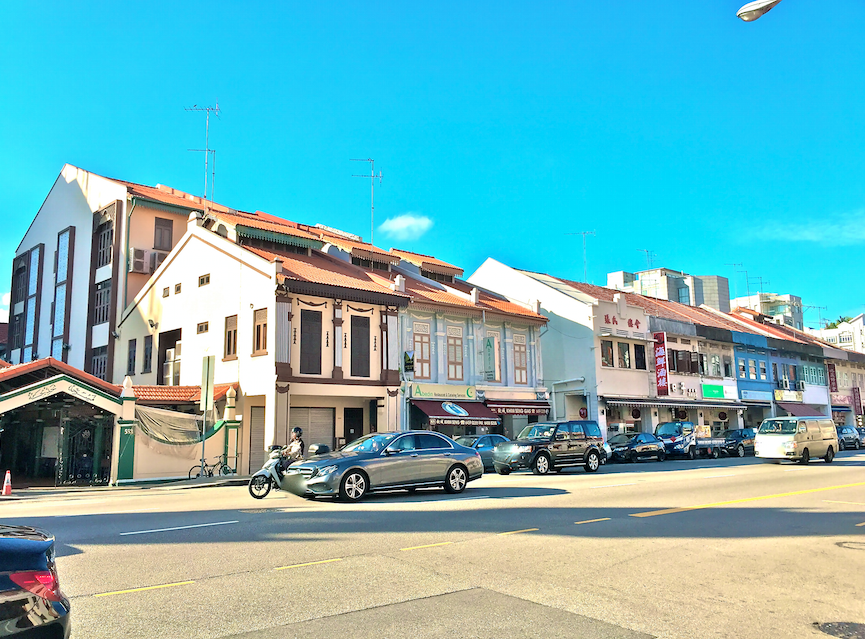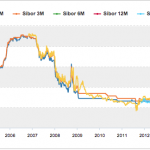The decision to buy or to rent a commercial or industrial property depends on many factors. If you are a business owner it is mostly about the economics of ownership versus that of renting. Here are some of the things that will affect the decision on whether to rent or to buy a property.
By UOB & Paul Ho

Image Credits: Geylang Commercial Retail Shophouses, Paul Ho, iCompareLoan.com
They are: –
Property prices,
Property price growth,
Down-payment,
Current Rental Rates,
Expected future rental rates,
Interest cost,
Maintenance cost,
Tax,
Tenure of loan (affects the monthly repayment and cash flow),
Renovation costs,
Security deposit,
Goods and services Tax (GST),
Agent Fees (for Selling and sometimes buying)
If you are currently renting your retail shop or office space, you can consider using the calculator whether to buy or rent commercial property as you are the confirmed tenant. In other words, you will always be able to rent it out.
However if you are aiming to buy for investment, then you will need to consider carefully the potential rent that you could obtain from the unit.
Here are 10 considerations whether to Buy or to rent a commercial property. With Singapore becoming more and more international, many overseas developers and investors are coming to our shores. It would not be surprising if more foreign buyers start to buy up commercial and industrial properties considering that there is no Additional buyer stamp duty (ABSD) for such properties. This could in the future raise the cost of doing business in Singapore and cause rents to rise. The commercial property downturn is perhaps a golden opportunity to ensure your business continuity of having a premise.
Property prices
Table of Contents
Property prices in Singapore have seen quite a bit of variance over the years. While commercial property prices have not been affected by the residential property cooling measures, the outlook for this market segment is more sensitive to local and global economic conditions.
Also, certain property types and lease tenures may not always be available in certain areas, so more research might have to be undertaken before a suitable property can be located.
It is particularly important for purchasers who intend to hold on to property in the short to medium term to monitor the trajectory of property prices over the years in all the areas where they are considering making a purchase, as well as to pre-empt any development in the area where the purchase will be made.
That’s why it is a must to do research in future development plans in the area where a potential investment property is located. If possible, make visits to the site and building to inspect the property first-hand. It is also advised to compare the last transacted prices of other units in the same and similar buildings.
Mortgage Loan interest rates
Comparing loan interest rates and understanding the difference between fixed and floating interests is important before deciding on a mortgage loan.
Floating interest rates in Singapore are usually pegged to the Singapore Interbank Offered Rate (SIBOR) or the Singapore Swap Offer Rate (SOR), which are constantly fluctuating. The SIBOR is calculated according to the local interbank market, while the SOR fluctuates according to the global markets, which tend to be less stable than the former.
Fixed interest rates ensure that the borrower enjoys a pre-determined interest rate for a specified amount of time, usually several years, after which they pay a floating interest rate. Borrowers who wish to limit their exposure to fluctuations in the market might opt for fixed interest rate mortgages.
Investors should continue to monitor interest rates throughout the duration of the loan tenure and refinance when it is prudent to do so.
Rent
Rents in Singapore can vary considerably according to location. It is important to conduct research not only on rent prices in the area you are considering of buying at, but also to examine the property type and location, as these can have a great impact on rental yield.
For instance, for retail spaces, one must consider factors like how much walk-in traffic the unit can receive. For office spaces, units in a nicely renovated building that boosts business prestige can usually command higher rents than those in a run-down office building in the same area.
Tenure of Loan – Tenure of Property Lease remaining
The tenure of the remaining lease on a property being considered for purchase will affect not only how much an investor has to pay upfront, but how soon he or she will need to sell the property to turn a healthy profit.
While shorter lease tenures tend to lower the price of a property and thus make it more affordable to purchase, this will also have an impact on investment gains when the property is sold.
It is, therefore, important to think about how long the investor intends to hold on to the property. An investor who intends to hold on to the property in the long and medium term should be careful not to purchase properties with few years of lease remaining.
Renovation Costs
The amount of renovation a particular property will require is an important factor to consider, as the cost of renovations on even a modest-sized commercial or industrial space can be in the tens of thousands.
Unlike renovating a home, when renovating commercial or industrial property, it is important to do so with increasing rental yields and investment gains in mind, rather than simply making the property look more attractive.
Property Tax and Maintenance Fees
While property purchases can be excellent investments, purchasers should know how much they would have to pay in taxes and for the upkeep of the property. For commercial and industrial property, property tax equivalent to 10 percent of the property’s annual value is levied.
Security Deposit
Landlords in Singapore typically require tenants to furnish a security deposit—usually amounting one to two months’ rent — which will be returned when the tenant moves out.
Landlords must be careful to document the original state and condition of the property before signing a tenancy agreement with a potential tenant, as well as obtain legal advice in the situations where they can retain the security deposit.
Goods and Services Tax (GST)
The sale and rental of commercial property in Singapore are subject to 7 percent GST if the owner is GST-registered. GST is also likely to be levied on the supply of furniture and fittings and real estate agents’ fees. This can have a significant impact on purchasers’ investment gains.
Christine Yeo, a lawyer at Haridass Ho and Partners, says, “Investors can always reclaim the GST by setting up a GST-registered entity as a vehicle to own the property. Alternatively, they can buy over the shares of a company owning the property, thereby saving on GST.”
Legal advice should be sought on how to structure the purchase in the mentioned ways.
Legal Fees
Many property purchases are handled by lawyers who typically charge on a per-purchase basis. It is common for commercial landlords to receive legal advice when drafting a tenancy agreement.
While a property purchase is usually charged on a per-project basis, it is a good to ask your lawyer for a quotation before commencing to ensure his or her fees are within your budget.
Ms Yeo advises that tenancy agreements are usually billed on a time-cost basis, but many investors prefer to proceed on a fix-cost basis instead.
“”If investors are uneasy about paying time-costs, lawyers can provide an estimation of their costs depending on the facts, such as whether there is an opposing counsel to negotiate with and the amount of rent being dealt with.””
Investors who are concerned about this should not forget to raise this issue with their lawyers before commencing the matter.
Agent Fees
Landlords who engage an agent to help them to buy, sell and/or rent out commercial property are liable to pay a fee. While fees can vary, agents usually charge 1 percent to 2 percent of the selling price for sales and 0.5 to 2 months’ worth of rent for tenancies, depending on the amount of rent and the duration of the tenancy agreement.
It is common practice to pass agents’ fees on to the tenant in the tenancy agreement.
Finally, never pick an agent indiscriminately and be prepared to interview several agents before finding one you are happy to work with in the long-term. Investors should be looking out for agents who are responsive and knowledgeable about the commercial and industrial property industry. We work with and curate the best property agents, you can get one via us.
If I want to buy a residential property in Singapore, what I can do? Click on the link.
In property, there are fundamentals and there are sentiments. When sentiments run wild, that can defy logic for an extended period of time. And ultimately when everyone makes silly decisions, it is also possible that the person that is not silly will lose out.
Connect with iCompareLoan on Facebook or
Connect with Paul Ho on Linkedin if you do not yet have any questions to ask and just want to stay updated on the property market.





